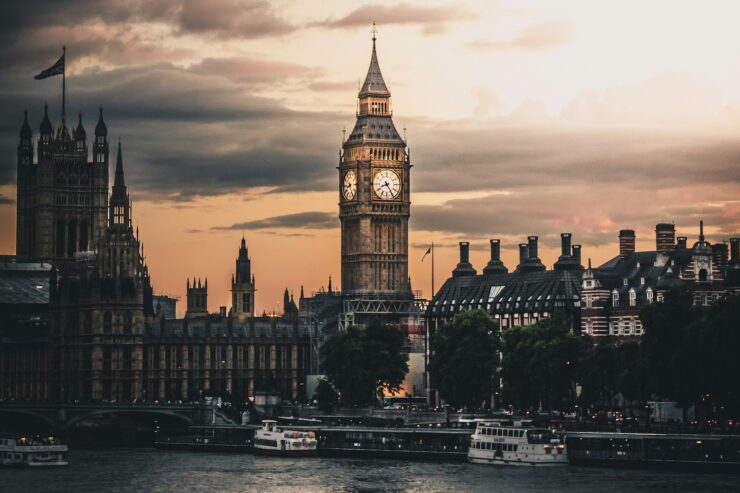London, Ontario is located in Southern Ontario. No doubt London, Ontario has many fine qualities, but if foreigners have heard of it at all, it is because the place name is a shibboleth that reliably identifies Canadians1. They may also have heard of it as a punchline on the Mary Tyler Moore TV show.
One would be very hard pressed to find five SFF stories set there.
London, England is an entirely different matter. Consider these five works, which are very small sample of works set in London2.
The Borribles by Michael de Larrabeiti (1976)
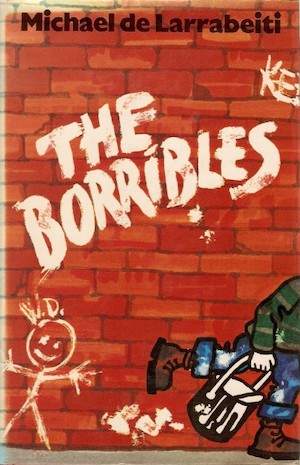
Particularly bold runaway children become pointy-eared Borribles. Borribles embrace lives of adventure. They are immortal until their luck runs out and they are killed or worse, are reduced to normal children again by having their ears cropped. All Borribles crave glory, for only by earning enough glory can they earn names.
Eight nameless Borribles are offered the chance to win names. The hated rat-like Wimbledon Rumbles intend to conquer Battersea. The Borribles would lose a conventional fight. However, if the eight Borribles can kill all eight members of the Rumble High Command, the invasion will fail. Glory awaits! Or so the eight are assured.
Persons of a certain age will be surprised and delighted by the many cultural references that de Larrabeiti slips into his novel. Other people may be alarmed by what they discover when they track down some of the allusions. Learning that which one was happier not knowing is part of the fun of reading older works.
SS-GB by Len Deighton (1976)
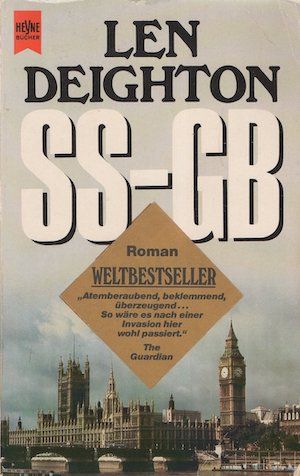
The United Kingdom has fallen to Nazi Germany. The UK is occupied. Winston Churchill has been executed. King George VI is a prisoner in the Tower. A few partisans are holding out, but it is only a matter of time before German troops find and kill them.
Detective Superintendent Douglas Archer answers to Gruppenführer Fritz Kellerman now. Otherwise, his job is the same post-Occupation as it was pre-Occupation: investigate and solve mundane murders, like that of the dead man in the run-down apartment over the antique shop. Except there’s nothing mundane about the investigation that follows. In fact, the fate of the world depends on its outcome.
I could do a piece on police procedurals set in worlds where the Nazis won. It may be that the Nazi tendency towards barefaced lies and concealing inconvenient facts is a difficult setting for works in genres based on uncovering truths that villains want concealed.
A Darker Shade of Magic by V.E. Schwab (2015)
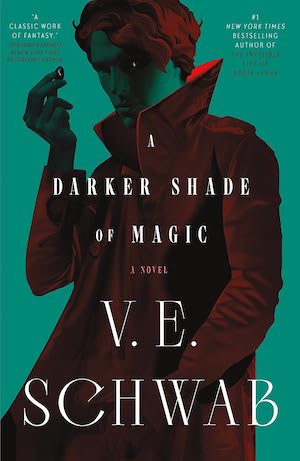
Able to walk between the four alternate Londons, Kell serves as Red London’s ambassador to Grey and White London. Kell could as easily step into Black London, but no sensible person travels there after Black London lost control of its magic.
Kell has a lucrative sideline: interdimensional smuggler. Kell makes the mistake of transporting a package without establishing its provenance. Kell then makes the worse mistake of losing the package to pickpocket Lila. Now Kell must find Lila before some very bad people searching for the packet find Kell.
I wonder what the odds are that having established that no sensible person travels to Ravenholm some cursed location like Black London, the plot will somehow, inevitably, involve that Bad Place? Is it one hundred percent?
Stray Souls by Kate Griffin (2012)
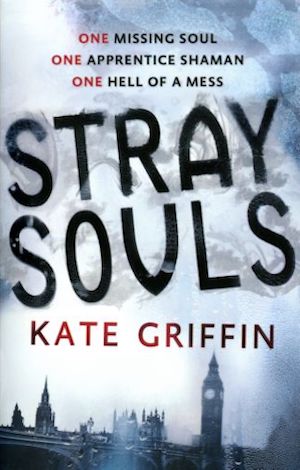
Unexpectedly imbued with the abilities and responsibilities of a shaman, Sharon Li reacted as any normal person might on discovering they are suddenly and without warning now a person of magical significance. Li formed Magicals Anonymous, a support group for the esoterically perplexed. Of which London has no small number.
Matthew Swift, London’s Midnight Mayor, has a use for the Magicals. A god is missing. Swift would prefer not to resolve the matter himself. How better to help the troubled members of the support group come to terms with their natures than by handing them a mystery that they don’t seem notably well-suited to solve—a mystery on which the fate of London depends?
Is Swift a lazy, useless nob who should be punted from office or a visionary manager able to see in people the potential they themselves cannot? As the focus is on Li and her pals, not Swift, that question is never fully resolved.
Cruel Pink by Tanith Lee (2013)
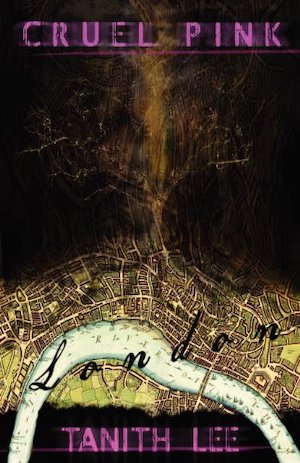
Emeni’s post-Collapse London provides an almost perfect stage for homicidal urges…but only almost perfect. Klova lives in a utopian London; too bad about her kleptomania. Rod lives in a mundane London, yet one in which his friends are somehow vanishing. Actor Irvin embraces both men and women, something that will not win accolades in a 18th century London not known for broad-mindedness. Four very different people, living in four different eras.
Linking them? The city of London, a common address, and their seemingly unremarkable, reclusive landlady.
This is a short novel, so it’s rather impressive that Lee flirts with five genres within its narrow bounds. Also impressive is the fact that, despite the odds against them, the characters manage to find reasonably happy outcomes, which is not generally the way to bet with Tanith Lee.
There are many, many works set in London that might have been mentioned. Some, like Babel, I have not yet read. Others, like the Rivers of London books, are being saved for other purposes. Still others, such as The World at Bay, are too obscure to mention even in passing. Nevertheless, feel free to extol the virtues of your own favorite examples in comments below.
- Canadians reliably add either Ontario or England after London. Other people, being unaware of London, Ontario, do not need to disambiguate. [My site editor Karen Lofstrom notes that London, Ontario is frequently mentioned in Jason Slaughter’s popular urbanist YouTube channel, Not Just Bikes. He calls it Fake London and contrasts its suburban wastelands to the bike and transit paradise of Amsterdam, his new home.] Why isn’t the Canadian city named New London or, even better, something new and unique? Because Canadians are collectively unable to grasp the utility of unique names. This is why if one refers to Father of Confederation John Hamilton Gray, one then needs to clarify if one means Father of Confederation John Hamilton Gray from New Brunswick or the Father of Confederation John Hamilton Gray from Prince Edward Island. ↩︎
- England. I won’t be adding this footnote to every instance of London, as I sense editors would object. Nevertheless, in my heart it is there. ↩︎










